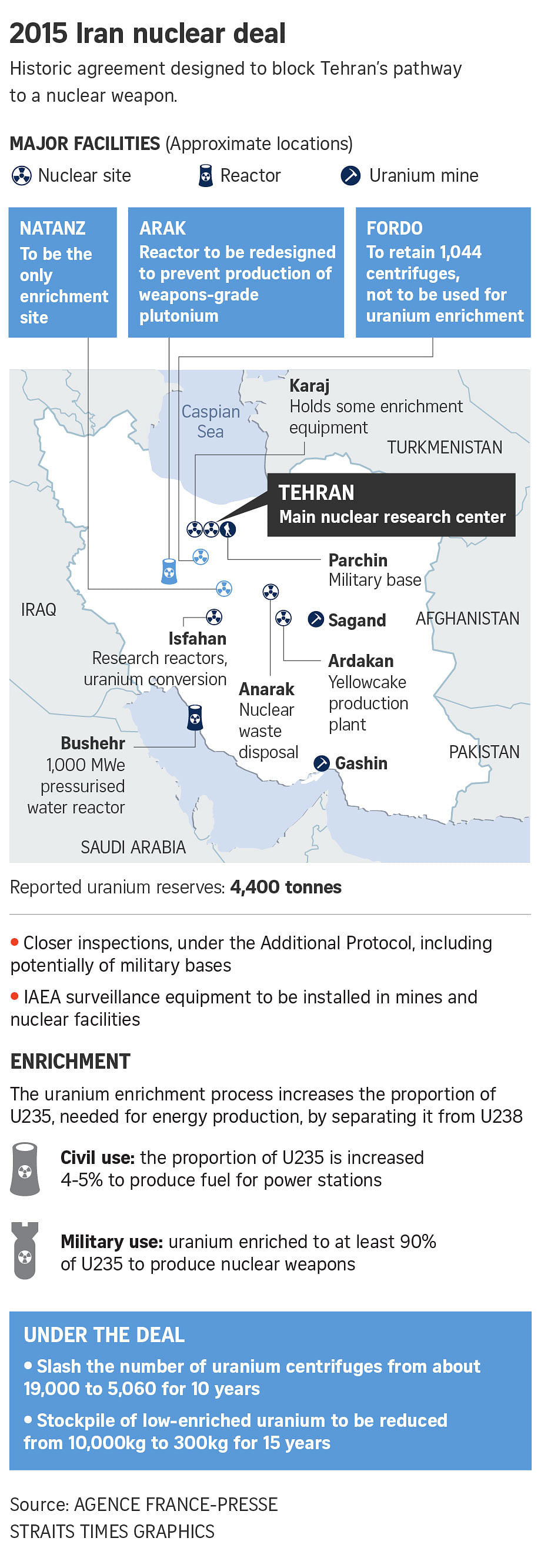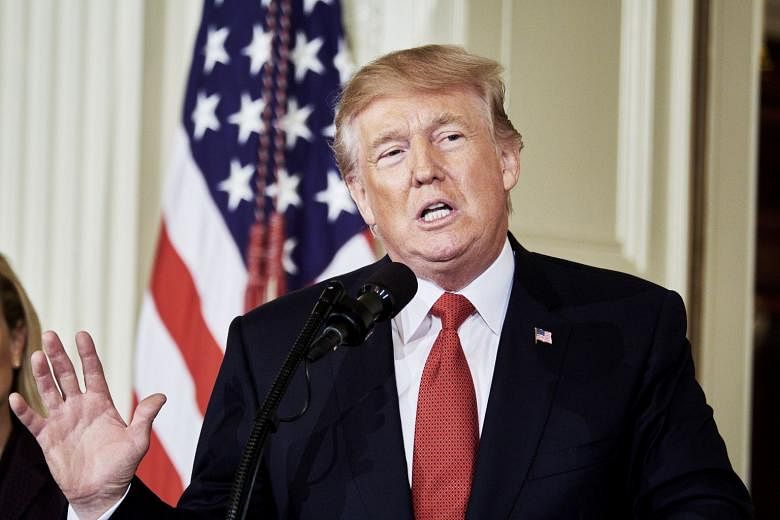WASHINGTON - President Donald Trump is widely expected to decertify a landmark nuclear deal with Iran after the White House on Friday (Oct 13) accused Teheran of exporting violence, destabilising its neighbours and sponsoring terrorism abroad.
But Mr Trump's decision - which comes despite the fact that Iran is in compliance with the Joint Comprehensive Plan of Action (JCPOA), as the 2015 deal is formally known - stops short of taking the United States out of the accord.
It passes the ball to Congress to decide on the future of JCPOA, which includes the option of walking out and reimposing punishing sanctions on Iran.
It also gives the US Treasury authority to target Iran's notorious Islamic Revolutionary Guard Corps.
Secretary of State Rex Tillerson told journalists that Washington did not dispute that Iran was in technical compliance with the JCPOA.
But he added that the agreement left unaddressed Teheran's support to the Lebanon-based militant Hizbollah group, its "export
of foreign fighters" and its ballistic missile programme.
US policy was that "Iran will never have nuclear weapons", Mr Tillerson said. Yet the deal provided a "countdown clock till when Iran can resume its nuclear programme".
"Either we put more teeth into the obligations Iran has undertaken or let's just forget the whole thing and we will walk away and start all over," he said.
Mr Trump wants Congress to amend the Iran Nuclear Agreement Review Act of 2015, which stipulates that the US President must recertify it every 90 days.
A new version should specify "trigger points" which, if crossed by Iran, would automatically allow for sanctions to resume.
But analysts say the decision carries grave risks, including opening up a damaging rift with European allies, emboldening hardliners in Iran and further destabilising an already volatile Middle East, and calling into question the US' commitment to international agreements.
Besides the US, China, Russia, the European Union and individually Germany, France and Britain signed off on the deal. They lifted rigorous sanctions on Iran in exchange for Teheran curbing its nuclear programme.
"The message is, even after we negotiate and sign a deal with you, and even if everyone agrees that you are complying, the next administration can jettison it," Mr Uzair Younus, an analyst with the Washington consultancy Albright Stonebridge Group, wrote in an e-mail.
"After decertifying JCPOA, why would anyone, including the Taleban, North Koreans and other nations, want to do the painful work of signing agreements with us?" he added.

Both China and Russia on Friday urged the US not to abandon the deal, with the Foreign Ministry spokesman in Beijing saying it was "important to ensuring the international nuclear nonproliferation regime and regional peace and stability".
Iranian Parliament Speaker Ali Larijani, who was in St Petersburg for an international parliamentary forum, said the nuclear deal would be ended if the US left it.


